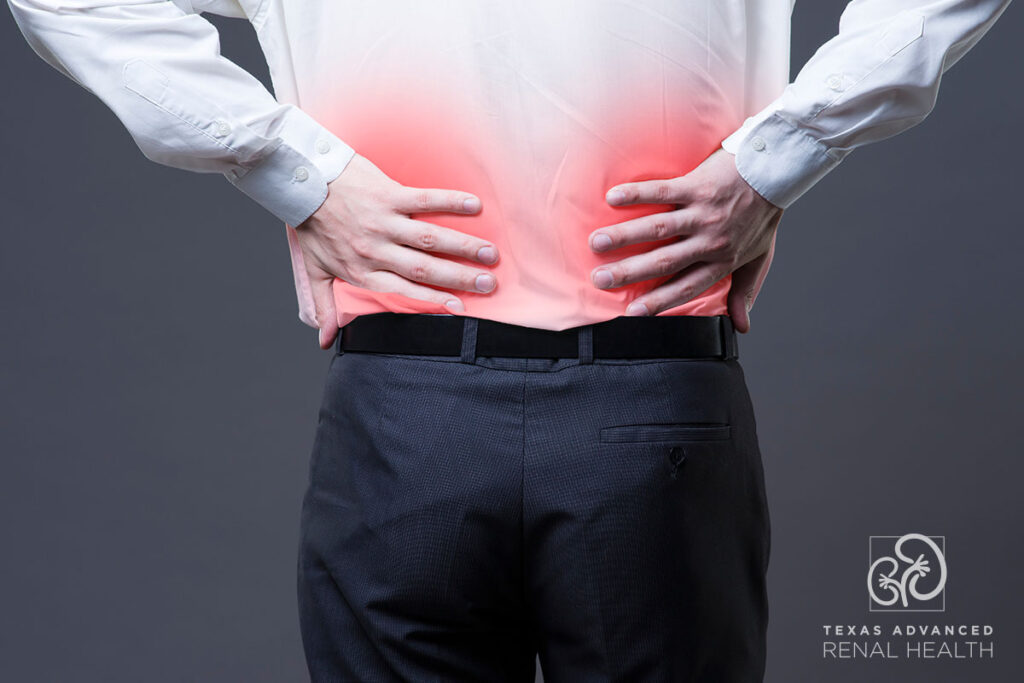Am I at Risk for Kidney Failure?

Your kidneys play an integral role in keeping your body healthy by filtering excess fluids and toxins. Kidney failure means your kidneys can no longer work the way they should, necessitating dialysis or a kidney transplant for survival. If you have chronic kidney disease (CKD), our team at Texas Advanced Renal Health will work tirelessly to ensure your kidneys function their best for as long as possible. You can count on us for state-of-the-art, trusted care.
What Is Chronic Kidney Disease?
Chronic kidney disease, or CKD, is a progressive condition that’s characterized by a gradual loss of kidney function over time. In its early stages, CKD can be successfully managed with medications, a kidney-healthy diet, staying active, and other lifestyle changes.
Without treatment or management, CKD can continue to advance, leading to kidney damage. Kidney failure means the kidneys no longer work as they should, resulting in dangerous levels of toxins building up in the blood. Dialysis or a kidney transplant are the only options for survival at this point. Our team at Texas Advanced Renal Health will help you understand your options and provide you with exceptional care and support every step of the way.
What Are the Risk Factors for Kidney Failure?
Factors increasing the risk of kidney disease and kidney failure include the following:
- Uncontrolled diabetes and high blood pressure
- Heart disease and heart failure
- Obesity or being overweight
- Family history of CKD or kidney failure
- Personal history of acute kidney injury (AKI)
- Smoking or the use of tobacco products
- Excessive alcohol consumption
- Prolonged use of Nonsteroidal anti-inflammatory drugs (NSAIDs)
- Obstructive uropathy, or blockages in the urinary tract
What Are the Warning Signs of Kidney Failure?
Warning signs of kidney failure may include the following:
- Changes in urination, including an increase or decrease in its amounts, blood in the urine, and foamy or frothy output
- High blood pressure that’s hard to control
- Loss of appetite, nausea, and vomiting
- Swelling of the face, hand, and feet due to excess fluid buildup
- Shortness of breath due to fluid buildup in the lungs and around the heart
- Difficulty sleeping, increased fatigue, lightheadedness, and dizziness
- Muscle cramps and increased headaches
- Pain in the lower back around the kidneys
- Ammonia breath, a metallic taste in the mouth, itching, and rashes
What Can You Expect with Dialysis?
Dialysis is a life-saving procedure that mimics the function of your kidneys, filtering out waste, toxins, and excess fluid from the body. There are two primary forms of dialysis: hemodialysis and peritoneal dialysis.
- Hemodialysis involves circulating and filtering your blood using a machine outside the body. It is typically performed at a dialysis center three to four times a week, although it can sometimes take place at home.
- Peritoneal Dialysis uses the abdominal lining, called the peritoneum, to filter the blood while it remains in the body. The procedure is repeated several times daily from the comfort of your home.
Dr. Saddedin will explain your options and help you determine the ideal dialysis solution that best suits your unique needs and lifestyle.
Chronic Kidney Disease Treatment and Management in McKinney, TX
At Texas Advanced Renal Health, we offer care and management for CKD to ensure your kidneys continue to function their best for as long as possible. If, however, you require dialysis, Dr. Saddedin and our dedicated team are here to provide you with exceptional care and guidance to ensure you continue living your life to the fullest. We invite you to call 972-548-4833 or visit us online to schedule your appointment today!
